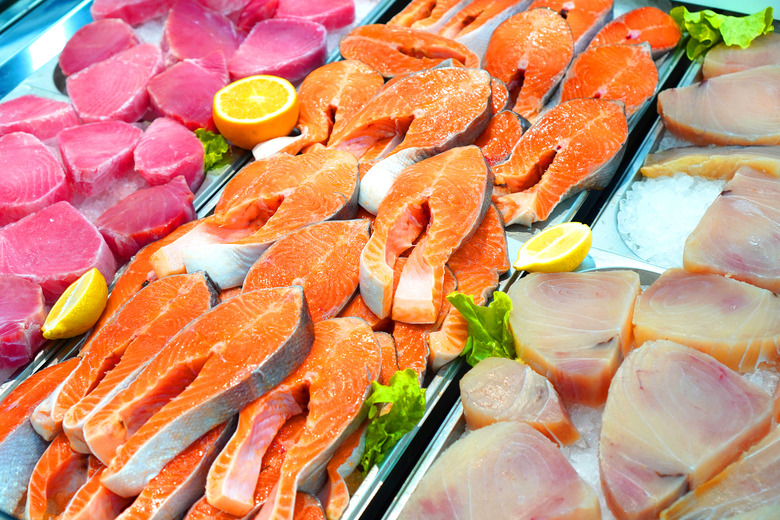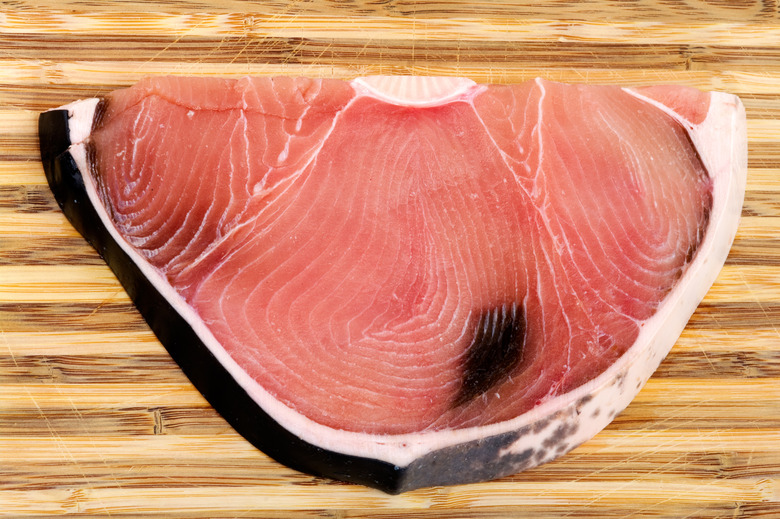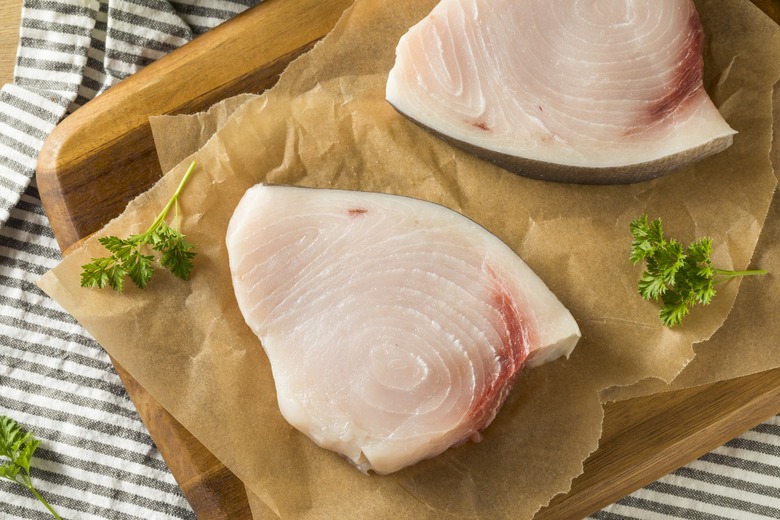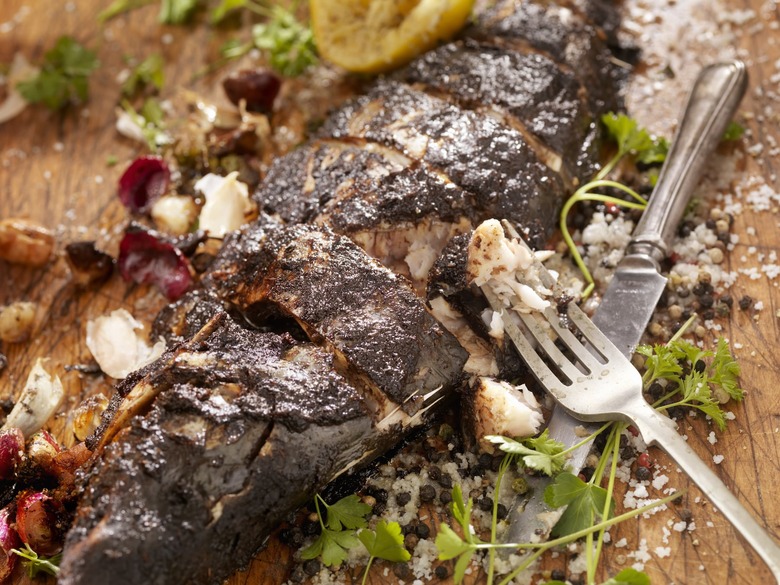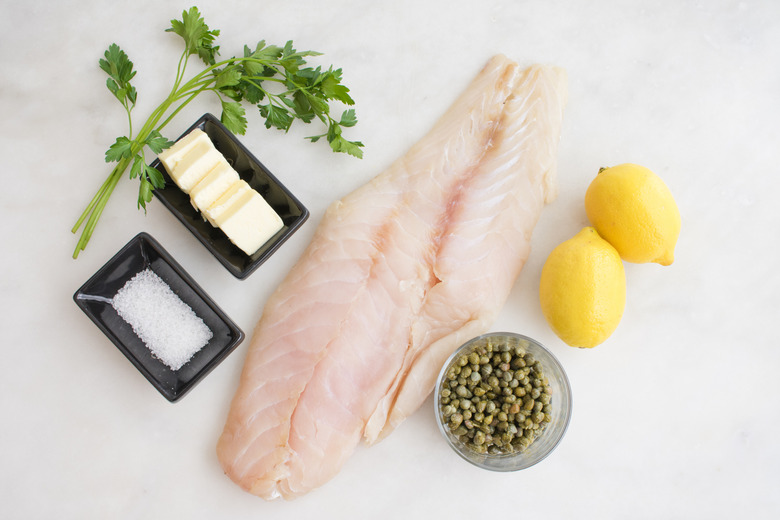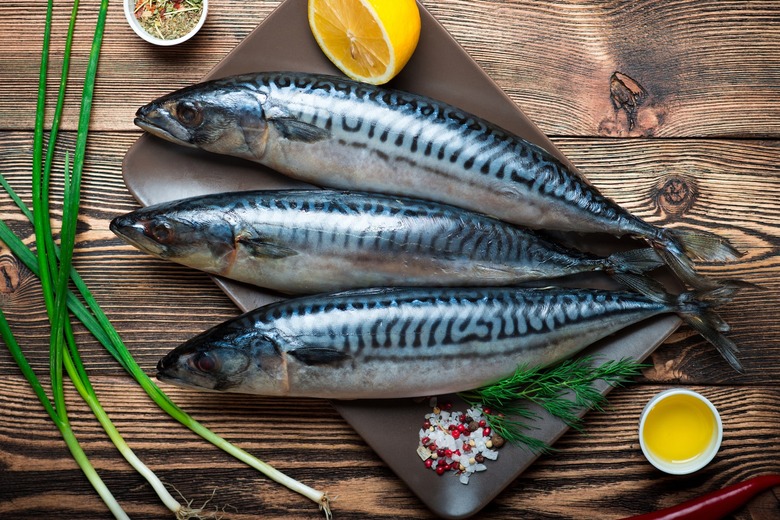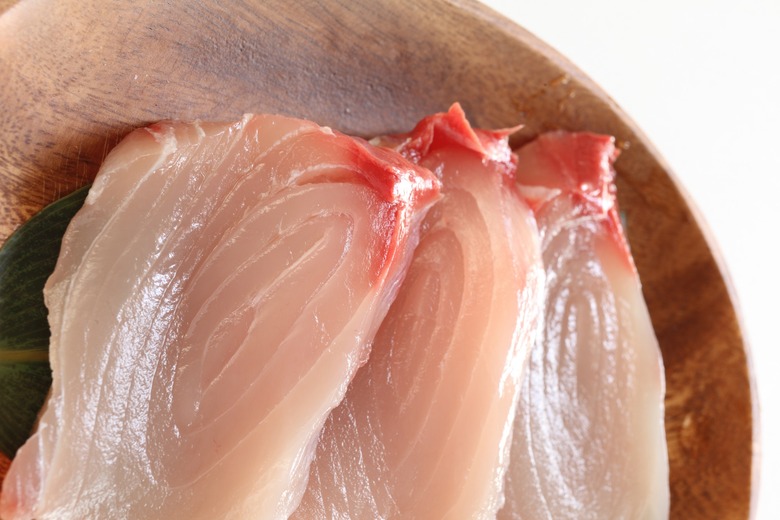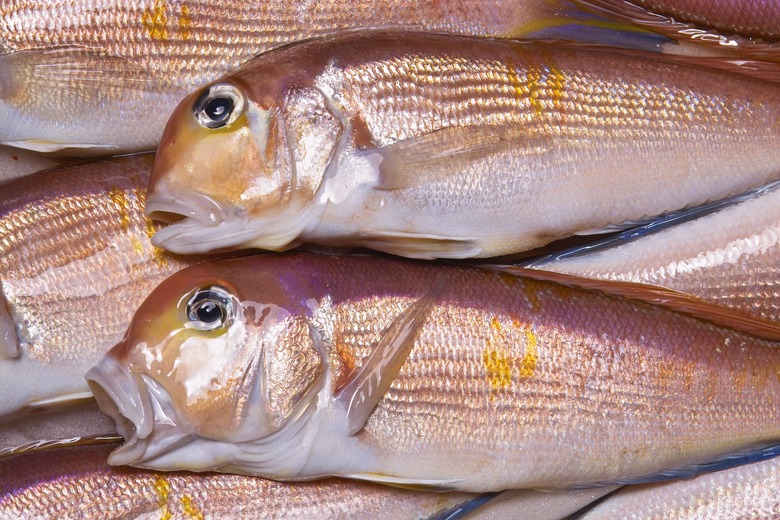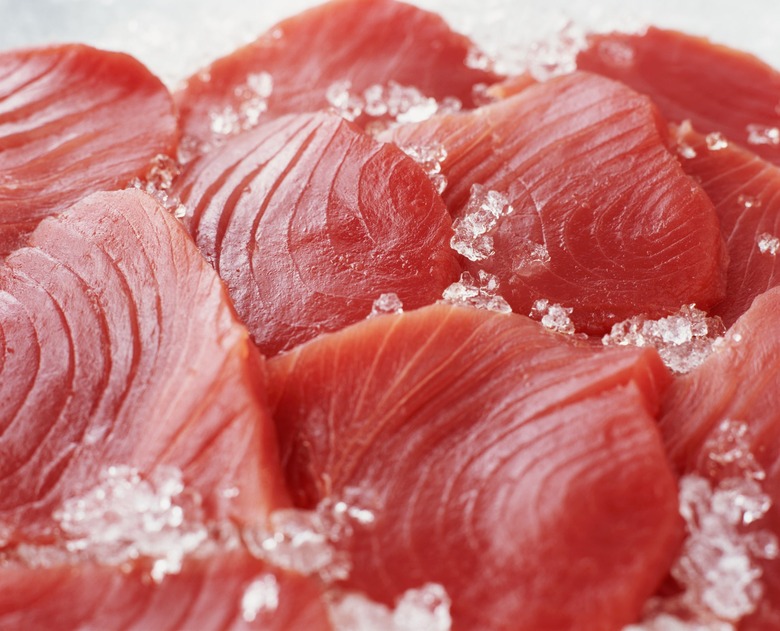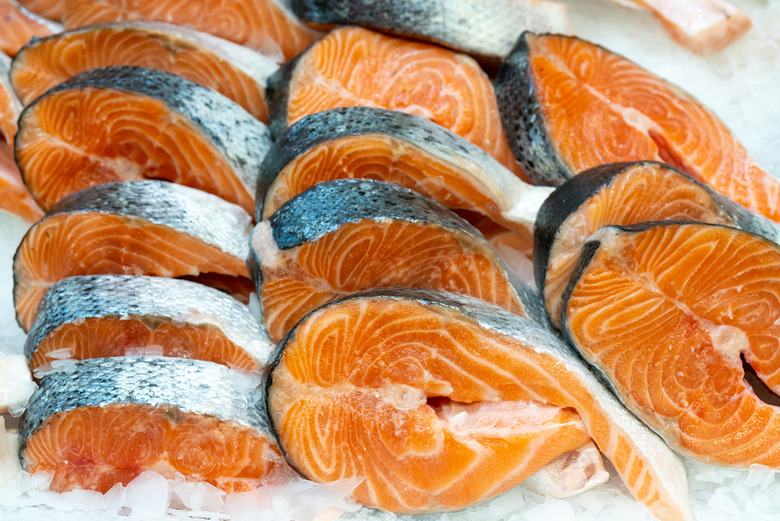The 10 Worst Fish To Eat
There is so much to love about eating fish. An integral part of the Mediterranean diet, fish is a lean protein that is low in calories and fat and a good source of omega-3 fatty acids — in other words, fish is a heart-healthy, good-for-your-brain food that is worth incorporating into your diet.
But between overfishing and pollution, some fish aren't as good choices as others. For an up-to-date guide on sustainable fish choices, check Monterey Bay Aquarium Seafood Watch. When it comes to your health, the U.S. Food and Drug Administration has guidelines on mercury levels and other food safety concerns.
Don't let this scare you out of eating fish, though. In fact, most Americans should be eating more fish! If you need inspiration, there are tons of wonderful fish recipes to satisfy pescatarians and meat eaters alike.
Shark
Sharks can be filled with high levels of mercury, as they are one of the ocean's biggest predators. They also aren't a particularly eco-friendly choice due to finning — the process of catching a shark, cutting off the fin, and releasing it back into the water. Avoid them as much as possible — at the beach and on your plate.
Swordfish
There are a few species of swordfish that are considered best choices from an ecological perspective. However, most species are known to contain high levels of mercury, so it's best to avoid eating it if possible, especially if you are pregnant. Try farmed Atlantic halibut instead.
Chilean sea bass
All Chilean sea bass — also known as Patagonian toothfish — is high in mercury, so consumption should be limited to three times a month. From an environmental perspective, Chilean seabass from Chile should, ironically, be avoided.
Orange roughy
Also known as slimeheads or deep sea perch, orange roughy are one of the worst fish to eat whether you are concerned about sustainability or mercury. This large fish has a long life and tends to live around 150 years, which is a lot of time to be consuming ocean pollutants. Try some tilapia instead, which has very little mercury.
Grouper
There isn't a single variety of grouper listed in the Monterey Bay Aquarium Seafood Watch's "best choice" category, which means it's best to be avoided for environmental reasons. Instead, try branzino that has been farmed using indoor recirculating tanks. It's a sustainable choice and its moderate mercury levels mean you can eat it up to six times a month without concern.
King mackerel
King mackerel is sustainable enough, but it's a big no-no for it's super high mercury levels. Wild caught Atlantic Spanish mackerel, however, rates highly for both sustainability and low mercury levels.
Marlin
With high levels of mercury and no species on the Monterey Bay Aquarium's "best choice" list for sustainability, it's probably best to avoid eating marlin all together. If you really have a craving for this fish and aren't concerned about potential mercury levels, then wild caught marlin from Hawaii would be your best bet.
Tilefish
Though it's not exactly common on American restaurant menus, it's still good to know that tilefish can have some of the highest mercury levels of any fish so should be avoided or eaten rarely. Try sustainably-sourced flounder instead.
Tuna
Another popular fish that can be hard to navigate is tuna. The sushi favorite gets a bad rep for high mercury levels, and in general it's a good idea to eat it less than three times a month. However smaller varieties like skipjack tuna, used to make canned chunk light tuna, are generally considered a low-mercury and sustainable choice.
Certain types of salmon
Salmon is one of the most popular fish to eat in the United States. But trying to figure out what kind to buy can be confusing to say the least. Though most types are not a concern for mercury, try to avoid Atlantic salmon that has been farmed in marine net pens or Chinook salmon from Canada. Instead, look for sockeye salmon, which is a reliably sustainable choice. Once you've got your sustainably sourced fish, you can go and cook up some spectacular salmon recipes.
More from The Daily Meal:
Foods to Avoid for a Healthier Diet
Sushi, Yogurt and Other 'Healthy' Foods You Should Avoid
The Healthiest and Unhealthiest Store-Bought Hot Dogs
The Best Things to Eat and Drink to Recover on a Hot Day
Gut Health Foods to Add to Your Diet — and Why You Should Care
